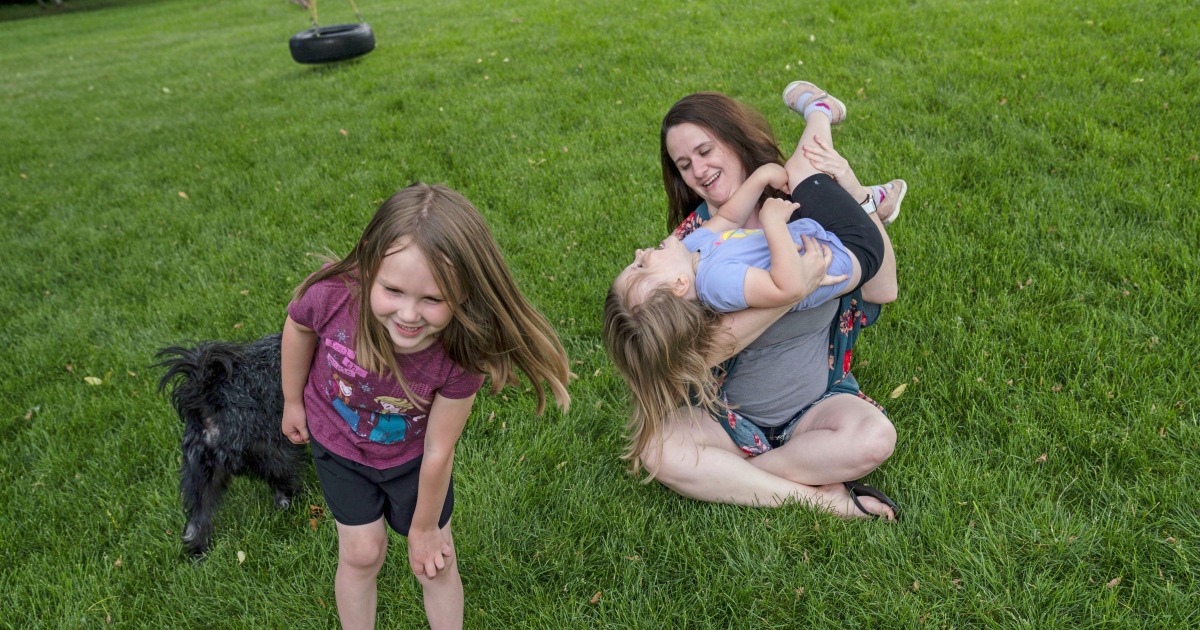
Yet the pandemic came at a time when there are more female breadwinners than ever in heterosexual couples, and could have been an opportunity for fathers to take on just as much of the burden of remote learning, experts said.
“I think there had been kind of a naïve hope and expectation that working from home would relieve the inequality in parenting,” said Kathleen Gerson, a professor of sociology at New York University who studies the intersection of gender, work and families.
Her preliminary research shows that unlike female caregivers, male caregivers did not cut down their work hours or leave the workplace as much during the pandemic. If anything, men felt more pressure to prove their commitment to their employers when they were not on-site, she said.
That did not mean that fathers were immune from the stress that mothers felt. In a survey released in March by the American Psychological Association, 47 percent of mothers with children who were still at home for remote learning reported that their mental health had worsened, and 30 percent of fathers who still had children home said the same.
But the pandemic highlighted inequalities in parenting, especially for families with two working parents, Gerson said.
“Women, and mothers in particular, are angry,” she said. “What the pandemic has revealed is this is not about having it all. This is about needing to do it all, and not simply for one’s own personal gratification, but because other people depended on you — not just for the care you give them, but for the income you bring them and for the basic foundation of family survival.”
“What the pandemic has revealed is this is not about having it all. This is about needing to do it all, and not simply for one’s own personal gratification, but because other people depended on you."
It was even harder in one-parent households. Amy Lane, 47, of Elsmere, Delaware, is a single mom to an 11-year-old, Talula, who has been doing remote learning since March 2020. Lane lost her job as a server at a restaurant when the pandemic hit and now is unsure whether she will be able to afford summer camp for Talula.
The pandemic, she said, has forced her to be more frank with her daughter.
“It’s made me not be so quick to have the answers, because we don’t. Not that I ever did, but as a mother, you try to be confident so your child is secure. But I just don’t anymore,” she said.
The pandemic has also influenced how mothers of children who are not yet school-aged are raising their kids.
Victoria Ernst, 26, a stay-at-home mom to a 3- and 1-year-old in San Antonio, said she became “harsher” with her children as her husband worked remotely from their small home and the stress of the pandemic began affecting both of them.
“Before, I was all about gentle parenting,” she said. “But now, I notice myself snapping a lot more than I used to, and in general, having a short fuse and not having patience for things that used to not set me off.”
Haley Barrett, 27, of Phoenix, became a mother two weeks after the coronavirus was declared a pandemic, and said she is parenting her 14-month-old daughter, Cora, differently than she expected.
She did not plan to allow screen time until Cora turned 2, but without any breaks — Barrett has only just started seeing family members now that she is vaccinated but is still hesitant to leave Cora with a babysitter — she has found herself putting cartoons on just to get dishes done.
“The world is totally unrecognizable right now,” she said. “That mental exhaustion on top of the physical exhaustion is a lot to handle, especially as a new parent.”
How to make motherhood less stressful
There are ways to make this stressful time easier, said Lynn Bufka, senior director of practice transformation and quality at the American Psychological Association.
Encourage autonomy in your kids, she said. Depending on their age, that might mean having them do laundry, or help loading the dishwasher.
“I hope this pause will help us recognize who our kids are and help us to parent toward our individual kids and what they want and need, not what the larger world around us tells us what our kids should be striving for.”
She stressed the importance of exercise for mental health, and said if you can’t find time to exercise alone, do 30 minutes of activity with your kids, perhaps in the form of a dance party or running around outside.
She also said to make sure you have sources of joy incorporated into your routine. That might be watching reruns, lying in the grass and feeling the sun on your face, or looking at the stars.
“Maybe you can’t get that in your life every single day, but try to get that every single week,” she said.
Going forward, Bufka said she hoped moms would put less pressure on themselves.
“I hope this pause will help us recognize who our kids are and help us to parent toward our individual kids and what they want and need, not what the larger world around us tells us what our kids should be striving for,” she said.
"how" - Google News
June 12, 2021 at 03:30PM
https://ift.tt/3izVx70
More screen time, more takeout, less 'mom guilt': How the pandemic changed parenting - NBC News
"how" - Google News
https://ift.tt/2MfXd3I
Bagikan Berita Ini














0 Response to "More screen time, more takeout, less 'mom guilt': How the pandemic changed parenting - NBC News"
Post a Comment